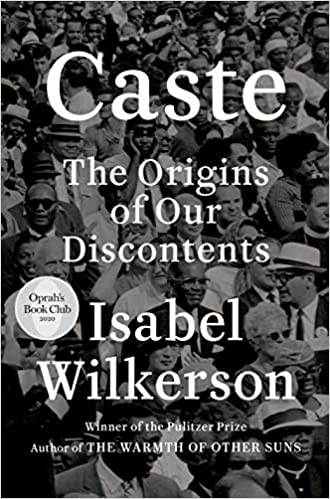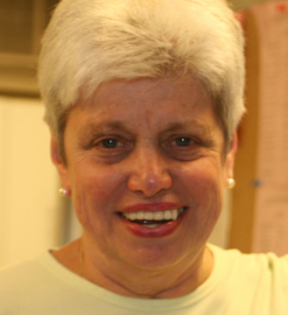
November 11, 2020 1:56 pm Everyone Should Read This Book!
Written by Marianne Riess
Many of us find ourselves with more time to read, as we are isolated from other pleasures such as movies, restaurants, or shopping. I was excited to order Isabel Wilkerson’s new book, Caste: the Origins of Our Discontents. I had enjoyed her first book, The Warmth of Other Suns: The Epic Story of America’s Great Migration, for which she won the National Book Critics Circle Award (non-fiction) and several other prizes. That book traced the migration of African Americans from the South to cities in the North, Midwest, and West in the 20th century, illustrated by the personal stories of the people who migrated. Those stories made the book not only important and interesting, but also a pleasure to read.
Caste is a more painful book, but it is important for understanding America in 2020. Instead of using racism as an underlying metaphor, Wilkerson describes a caste system, with a dominant caste, a lower caste and gradations in between, to describe American historical experience from 1619 to the present day. One caste is presumed to be superior; another is presumed inferior based on certain traits, which do not change from one generation to another. Based on those presumptions, she describes the caste system as being “about respect, authority and assumptions of competence – who is accorded these and who is not.” Caste is even more rigid and fixed a system than racism.
The book compares India’s attitudes toward untouchables (Dalits) to America’s toward African-Americans and the Nazi’s toward Jews. In each case, the supposedly inferior caste was confined to certain areas and “occupations,” treated inhumanely, and kept in their place in ways that were accepted by the superior caste and built in to the society as a whole. According to Wilkerson, the caste system is structured like a house. The lowest caste is “the mudsill – the beam that anchors a house to its foundation and supports the whole structure,” doing the work that needs doing and that no one else will do. The upper castes are invested in keeping the lower caste just where it is and working hard.
Like her previous book, Wilkerson uses historical and personal stories to illustrate the experiences of those in the lower caste. This is where the book becomes painful to read. The details of the cruel treatment of the lower caste during slavery and the Jim Crow years are seriously disturbing. That the discrimination has become subtler and less visible in modern times does not make it less onerous and implacable.
The book makes you think differently about what is often called systemic racism. It is an absolute mind-opener. I recommend it highly.
Marianne Riess is the former head of the Putnam Indian Field School in Greenwich, CT. She has over 40 years of experience in working with young children.


